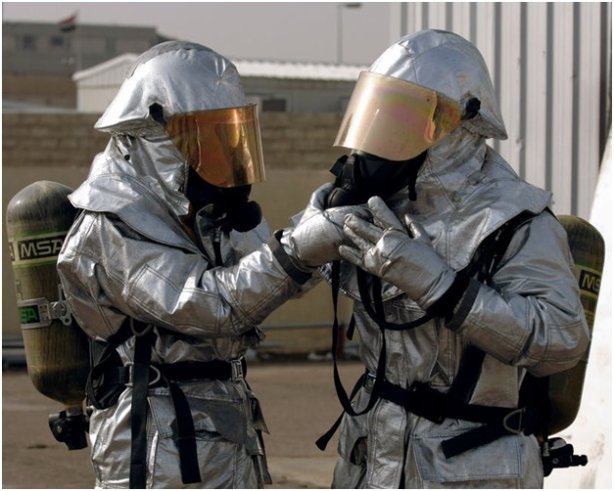Your lungs are one of the most vital organs of your body. They provide you with oxygen and ensure that every other organ functions correctly. That said, disease, genetics, and the environment can harm your lungs and cause respiratory issues. However, sometimes, people don’t understand the importance of good lung health until they start experiencing breathing problems. However, by the time they do, it might be too late.
According to an American lung Association study, more than 150,000 people succumb to lung cancer due to smoking or inhaling second-hand smoke. However, the study also suggests that around 15% of these individuals developed lung cancer because of contacting toxic, dangerous substances and chemicals, like radon, silica dust, asbestos, and other environmental pollutants while working.

That said, there is a shining light at the end of the tunnel. Most occupational lung issues, such as COPD(Chronic Obstructive Pulmonary Disease), are entirely avoidable. In the end, you must take care of your body, including everything from your heart to your eyes, and most importantly, your lungs. So, if you are experiencing some discomfort breathing, chances are your work is slowly killing you. Keeping this in mind, let us look at a few jobs known to damage your lungs.
Table of Contents
Pipefitter.
And we all know what asbestos can do, right! It is a dangerous, naturally occurring mineral widely utilized in the manufacturing of insulation material. As pipefitters work with insulation material, they have a higher chance of asbestos exposure than others.
Not to mention, when somebody inhales or ingests asbestos, it gets trapped in the lining of the abdominal cavity or the lungs. Such a thing might cause deadly cancers like peritoneal mesothelioma and asbestosis.
Although there has been a decrease in the usage of asbestos these days, it is still used in various home and factory applications. Moreover, pipefitters are also at a higher risk of exposure to benzene. So, it would be wise to consider the health implications before choosing the career of a pipefitter.
Refinery worker.
Throughout the entire 1980s, refinery workers usually had to work with equipment containing asbestos. These included pumps, furnaces, dryers, ovens, heat exchangers, and much more. Due to this, these workers risked being exposed to harmful asbestos fibers by just being around the equipment itself.
As a result, there have been thousands of cases where ex-refinery workers were diagnosed with severe lung diseases.
Furthermore, gaseous benzene is always ever-present inside an oil refinery, making matters worse. So, if you are thinking about applying your trade as a refinery worker, think otherwise!
Firefighter.
Firefighting is a very fulfilling and respectable career choice. After all, what other type of profession allows you to save people’s lives on a day-to-day basis(other than becoming a doctor, of course). However, when putting your life on the line rescuing people, you will surely come in contact with smoke and other varieties of dangerous chemicals.
That said, while firefighters have to wear protective equipment, which includes a gas mask, while on the job, they will typically take it off while clearing debris. Smoke will enter the lungs and result in breathing issues over time.
Due to such a reason, the International Association of Firefighters suggests donning respiratory protection at all times.
Bartender.
Everybody is aware of the fact that bartenders tend to inhale second-hand smoke regularly. After all, a bar is usually a place where people smoke and drink up night after night. Exposure to such second-hand smoke can lead to respiratory issues in the long run.
Fortunately, many states around the USA have outlawed smoking in bars and restaurants, which is perfect for you if you’re thinking of working as a bartender yourself. Studies show there is an improvement in lung health amongst bartenders in states where smoking is banned. That said, you must first check with your state government if such a law exists.
Miner.
Miners are at the top of the list of individuals who experience respiratory issues. And for many reasons. Miners are at a higher risk of being exposed to quartz dust, also known as airborne silica. Such an element leads to a medical condition known as silicosis, which is the scarring of the lungs.
Furthermore, miners also suffer from black lung disease or pneumoconiosis. It is a disease that occurs because of constant exposure to coal dust. However, to decrease the chances of exposure to coal dust and quartz particles, miners must wear dust filter masks and protection equipment whenever they enter a mine.
Moreover, these individuals should also consider limiting smoking as it can amplify their symptoms.
Healthcare worker.
While you might consider healthcare a ‘safe’ profession, it has its fair share of issues. For example, powder residue can attach itself to latex gloves and lead to allergies when inhaled. Moreover, sometimes it can also result in asthma-like symptoms.
Unfornatunely, avoiding the usage of gloves is not an option for healthcare workers. In such a case, the hospital or medical facility has to play a significant role. For instance, medical facilities can switch to latex-free, synthetic gloves to ensure healthcare professionals remain allergin-free.
Shipbuilder.
These workers are at constant risk of exposure to fiberglass regularly. And according to scientific research, insulation fiberglass has been known to cause cancer in laboratory animals. Although manufacturers claim that their fiberglass is free of any cancer-inducing chemical, statistics and studies suggest otherwise.
Moreover, these professionals might also get exposed to asbestos in some cases. So, if you are considering the career of a shipbuilder, you must take these health risks into account.
Conclusion.
In the end, it is all about following the Hierarchy of Controls. It states that you must start by eliminating any or every hazard in the workplace. Once you have done this, you need to take precautionary measures to keep your lungs away from carcinogenic materials and particles.
For instance, using respirators, gloves, and eye equipment in dangerous places can drastically reduce your risk of contracting respiratory diseases like mesothelioma.




